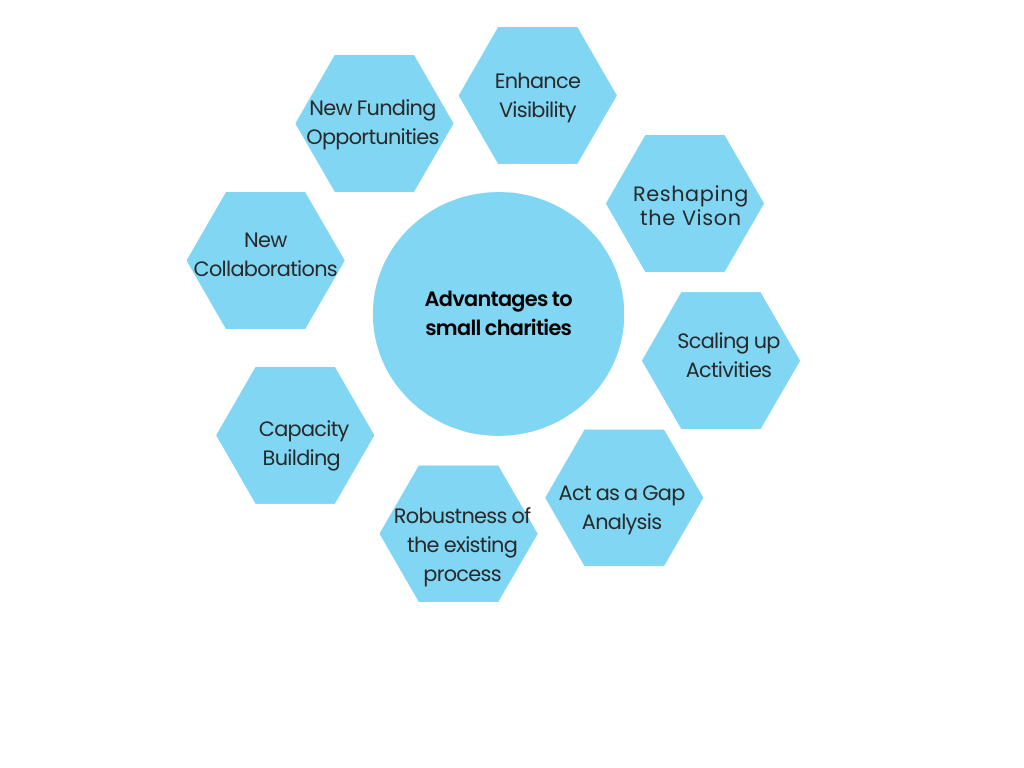
Last year, I had the opportunity to work with a small charity, Women’s Cultural Areena (WCA), based in High Wycombe, Buckinghamshire. Charity, which hails building community integration by bringing individuals from diverse backgrounds with mutual recognition through art and culture, also pursues initiatives in combating deprivation among the homeless community and building mental resilience through community allotment gardening. WCA has a broader impact on the local community.
The charity’s founder has been a dear friend of mine for over a decade, and we studied MBA together at Buckinghamshire New University. However, we lost contact as I relocated to the North-west; she approached me when I needed solid friends around me. Later, I voluntarily gave my expertise in report writing and data visualisation whenever she requested. I have been rebuilding my life after the tragic loss of my husband; she wanted to apply for a large funding opportunity that involved a competitive bidding process. The scale is over half a million pounds for three years.
I was in the middle of a house move, but I said yes. Many around me at that time were generously saying what I was not good at, including recruiters, so I decided to take on the opportunity. When I read the project scope, I realised it was a worthy cause: improving women’s health. At the same time, I had to manage their expectations and set realistic goals with limited time.
I had two weeks: daytime, house moving project, nighttime, preparing WCA funding documents. Our main aim was to submit a complete set of documents and pass the first hurdle. Attract the ‘Visibility’ and demonstrate that WCA is ready to take the next leap, as well as test the robustness of the existing processes. We worked as one unit, poured heart and soul into it, and galvanised our efforts to successful submission; the result was a small charity shortlisted for the final round.
We realised the magnanimity of being runner-up against a global charity that has been in the charity ecosystem for more than a century. WCA’s annual revenue is less than 1% of theirs. Kudos to the winners, and we wish them every success in this pilot project of improving women’s health of childbearing age in the most deprived areas of Buckinghamshire. Kudos to the small charity, WCA, for thinking beyond the fear of failure. Appreciation should also go to the Buckinghamshire Council for providing such detail evaluation which gives insights into areas of improvement; those are gold nuggets.
Why is it perceived as challenging?
Sometimes winning is not all that matters; loss can be a stepping stone for future success and shaping who you are and what you want to be. Small charities are often reluctant to bid for large funding opportunities because of fear of failure and the magnanimity of the large charities they have to compete with; fear not whom you compete against but fear of not competing. Why? Because you hinder growth potential.
I do not underestimate what small charities have to endure when competing with large, well-established charities with specialised bid writers and the ability to reach out to top-tier outsourcing firms for bid preparation. Small charities lack specialist knowledge and skills in-house and are challenging to hire externally due to limited funding resources. This is the dilemma any small charity has to face.
With rising inflation and the cost of living, small charities that are strongly rooted locally feel the pinch as local support dwindles under inflationary circumstances. Also, notice the increasing trend of funding bodies calling for output-based competitive bidding. This often involves a two-stage process: meeting quality criteria for the initial threshold and shortlisting for final evaluation.
The process of preparing and submitting such documents requires a wide range of skills, including project management, budgeting, report writing, and data presentation, which many small charities lack. Nevertheless, it is worth the try. Pool your resources, accountants, managers, and volunteers and reach out to consultants who would like to support you. Similarly, I did with WCA.
What are the advantages (Figure 1.0):
- Enhance the small charity’s presence/visibility among funding agencies, stakeholders, beneficiaries, and volunteers. This also signals that ‘we are serious about what we do,’ which increases the charity’s credibility.
- The process will galvanise the small charity’s energy, resources, and skills towards one goal and, most importantly, give it a sense of future direction, compelled to think beyond day-to-day operational challenges.
- The process acts as a gap analysis. It helps to identify gaps in the internal capabilities, where efforts should be directed regarding readiness for the next phase. E.g. CRM systems and training gaps
- New funding opportunities allow the charity to scale up its activity levels (e.g., reach out to more beneficiaries in the same local area or different regions), and diversify the missions it wishes to pursue, resulting in a decrease in business risk.
- Capacity-building opportunities: Small charities can secure more significant funding opportunities to build organisational infrastructure, hire skilled professionals, train existing staff, and recruit more volunteers.
- The process encourages charity to think about productivity and how we use existing resources.
- Emphasise the ‘Social value and Social impact’ of small charities in the local community with social inclusion and green initiatives with facts and figures.

Figure 1.0: Advantages to small charities competing for large funding opportunities.
Created by the author
Conclusion.
Last, even if you are unsuccessful but reach the final stage of the bidding process, it is a great success for any small-scale charity. You will be evaluated against what may be a prominent charity and experience. What a joy! You are competing with large fish in the pond, finally. Celebrate the moment. Spin-off funding opportunities and collaborations will be on the horizon. Who knows, you may be the winner next time!
Cover Image by Natnan from Adobe Stock
